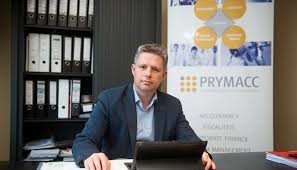News
Interview with Prymacc

- Interviews
- 04 November 2015
Share on
We did an interview with Transeo member Prymacc, Peter Rymenants.
As an certified accountant he doesn’t only keep an eye on the numbers. Peter is not only an accountant, but also an entrepreneur.
-
Can you tell us something about the Prymacc concerning their role in business transfer?
Prymacc is a certified accounting firm and we strive to be a strategic partner for our clients. As many SME’s cannot or do not engage a permanent Financial Manager we have made it our business to bring as much of financial management into the client’s organisation as we can. Sometimes the clients have a necessity to grow or to reorganize or to even sell their business and at that time we become involved. As an accountant we understand very well our client’s needs and possibilities and together we can than work out a realistic growth plan. On top of that we have experience in audit, financial advisory and up to a limit legal and tax advisory, hence we are qualified to help our clients solving their business transfer opportunities and needs.
-
And what’s your role in the process?
As the major shareholder of the organization and managing director I am very much involved as the coordinator of the strategic process. Hence clients want to have a close contact with myself when a business transfer is needed. Thanks to my experience, education and network I have the most experience within the office to get a deal done. My goal is to involve more people into this process and to have more specialization inside the organization. However the last couple of years we have focused on our core business and that is still accounting, advisory and reporting. I think we will be able to get more expertise into Prymacc over the years to come. The essence of our profession will be more advisory work, clients need more advisory service related to business transfer and our key staff now have the right experience and education to be more involved.
-
Can you share an anecdote with us from the last months, where you really helped an entrepreneur with his question in business transfer?
We all know entrepreneurs who really are fed up with their business and who are no longer capable of developing a strategy or to even run their business on a day to day operation. On the other hand they strive to maximize their profit by selling the business as they think of it as a sort of a pension plan. A while ago we helped an entrepreneur buying such a business under the condition that the old entrepreneur would stick around for a while in exchange for a more than acceptable earn out fee. Seems now the seller has found a new direction and wants to buy back in, they have created a new strategy. A clear example of not knowing what comes ahead besides a lot of choices and opportunities…. But it takes them longer to see this. In the beginning everybody is thinking of risks.
I did a buyout myself with a final cash out after a 3 year period. All clients stayed and we do double sales now with the same client portfolio of years ago. Just by introducing new activity and provide more and better service. The old accountant stayed for 3 years and beside his earn out he also was paid for his service. I could not find a better accountant in the market. He knew the clients, he was taking as much risk as I was, hence he remained motivated to keep me and the clients happy. He took good care of the old service and I could concentrate on the new developments. We had our differences but we managed to find common interest in any of the circumstances.
-
Do you have a best practise to share with the other Transeo-members?
Having a business plan with a budget, making targets on sales, people, investments etc… are essential items to start from. I do not like deals that are concluded in a couple of hours or even days and that are not talked trough from the business perspective. Before the lawyers and the advisors come in it is essential that the entrepreneurs know what kind of business they would like to make after they have done the business transfer. Multiples, values, negotiation, due diligence all of that is important but having a strategic plan and a first strategic analysis of the underlying business including commercial outline and opportunities, investment necessities, synergies, etc… are essential to make it work after the deal is done. That will determine the real price a buyer can pay.
It is also important to start preparing a potential sale a few years ahead, meaning making sure shareholder value is maximum and the business is stable and well organised.
Last but not least, to quote Donald Trump (at least for once), “sometimes the best investments are the ones you don’t make…”

